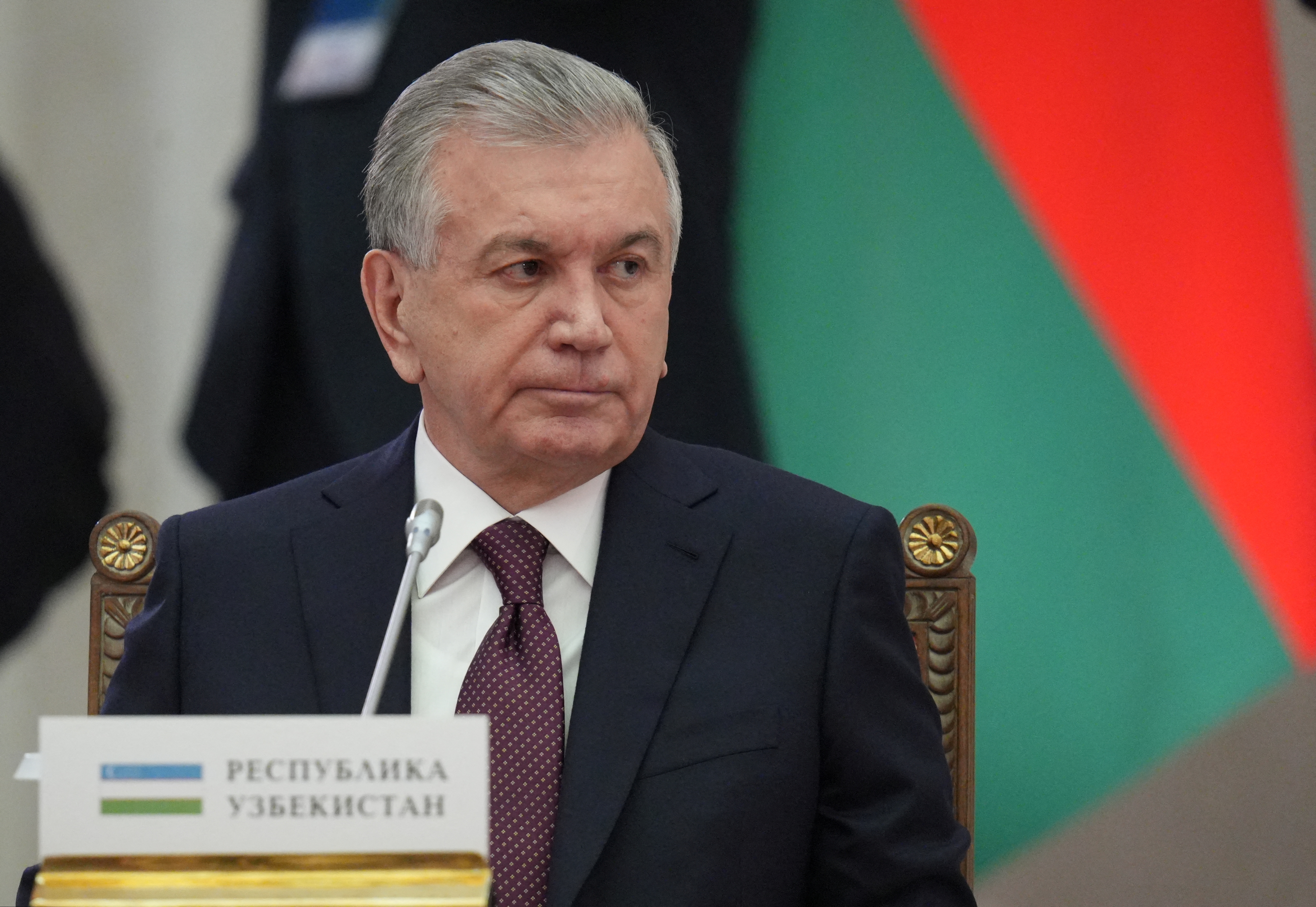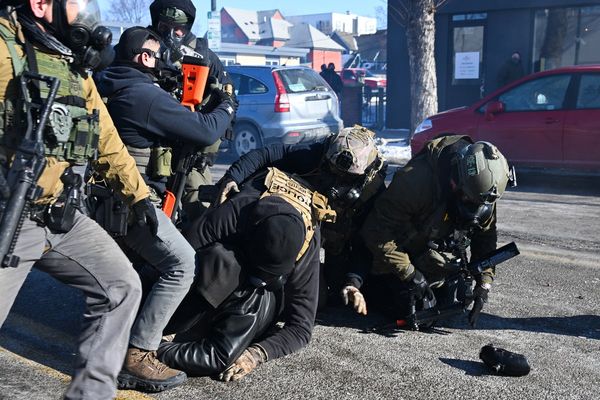
In Uzbekistan, July is the cruellest month. The merciless, blistering heat can make Uzbeks want to hide in the tiniest patch of shade – or not to be outdoors at all.
The people who can afford a vacation in colder climes are gone, while millions of farmers start tending to their plants or cattle at dawn when the air is still chilly.
Many Uzbeks would prefer to stay in their air-conditioned homes on Sunday, even though for weeks they have been urged to cast their vote in the snap presidential election.
“Are you joking? I’m not going anywhere. My vote means nothing anyway,” Karim, a 27-year-old who sells mobile phone cases from a tiny kiosk in Tashkent, the Uzbek capital, told Al Jazeera.
For more than three decades of Uzbekistan’s independence, presidential votes were held in early December. The snap vote being held in a “dead season” is deliberate, said Timur Numanov, a popular political blogger.
“Authorities did everything to kill interest to these snap non-elections,” he said.
‘No-names’
The election was announced in May after constitutional amendments “annulled” the previous and current terms of incumbent President Shavkat Mirziyoyev.
The amendments also extended the future terms from five to seven years, allowing him to stay in power until 2037, when he would have turned 79.
Few doubt that Mirziyoyev, Uzbekistan’s second president since the 1991 collapse of the Soviet Union, will lose the vote.

His predecessor, Islam Karimov, extended his terms through amendments and referendums, while his rivals were little-known politicians fielded by pro-government parties.
The real opposition and government critics were either jailed or forced out of the ex-Soviet nation of 36 million.
After Karimov’s death in 2016, Mirziyoyev conducted long-awaited reforms that simplified taxes, removed hurdles for businesses and allowed many to solve their bureaucratic problems via petitions on the presidential website.
“Things are much easier now, there’s less paperwork and pressure,” Abdusattar Yolchiyev told Al Jazeera.
“Under Karimov, if you paid taxes according to all the regulations, you lost all your income and had to pay extra,” said the 51-year-old owner of a stationary shop in Tashkent.
Miriyoyev also purged the ranks of prosecutors and security officers, closed down an infamous prison where two dissidents had been boiled alive, and released political prisoners and Muslims jailed for alleged “extremism”.
But he eventually returned to Karimov’s iron-fisted policies and has preferred to have obscure figures run against him in Sunday’s vote.
“This time, absolute no-names are fielded as alternative candidates. Their campaigning is only seen on look-alive banners, and no one raises any urgent topics,” Numanov said.
Robakhon Makhmudova, deputy chairwoman of the Supreme Court and one of the “no-names” fielded by the Adolat (Justice) party, has pledged in her laconic campaign leaflets to build a “just” Uzbekistan and make healthcare free for everyone.
Ulugbek Inoyatov, another presidential aspirant, has proclaimed his main goal is “to form a democratic, social state that meets the criteria of social justice, social equality and democracy”.
Inoyatov is a former education minister Mirziyoyev fired in 2018 for a “lack of initiative, corruption in school and outdated views”.
Former forestry official Abdushukur Khamzayev of the Ecological Party wants to curb cigarette use and stop selling cars with combustion engines in 2030.
He also wants to ban the use of cars every Friday, even though many men flock to mosques that are far away from their homes or work.
End of cotton?
Mirziyoyev’s pledges are more diverse.
He wants to double the gross per capita income from the current $2,000 and has even considered reducing the planting of cotton – both the backbone of Uzbek agriculture and its curse.
Soviet Moscow turned Uzbekistan into its cotton basket, and millions of government employees, university students and schoolchildren were herded to cotton fields each fall for weeks as part of one of the world’s largest systems of forced labour.
The practice continued after Uzbekistan’s independence, when farmers were forced to grow cotton and sell it to the government at a fixed low price.
The practice has made Uzbekistan a major raw cotton importer and created one of the worst man-made environmental disasters in history, the desiccation of the Aral Sea.
Mirziyoyev dismantled “cotton slavery” by allowing farmers to sell raw fibre at market prices and promoting the domestic textile industry.
In late July, Mirziyoyev said Uzbekistan’s profits from tourism already surpass those from cotton. “If we boost [the number of tourists] three or four times, we can stop planting cotton,” he said on June 26.
His campaign was backed by other symbolic gestures.
The grey Stalinist headquarters of the Security Service of Uzbekistan, the main intelligence agency that succeeded the Soviet-era KGB, in central Tashkent is being dismantled.
And in late June, Mirziyoyev announced three days off to celebrate Eid al-Adha, turning the week into a five-day-long mini holiday.
‘Backsliding’
For 13 years, Mirziyoyev served as Karimov’s prime minister, keeping a low profile and distancing himself from his authoritarian boss’s excesses.
One of them was the 2005 order to mow down hundreds of protesters in the eastern city of Andijan that became the bloodiest crackdown on a revolt in the former Soviet Union.
Following Western criticism and sanctions, Karimov booted out a United States military base on the Afghan border and began rapprochement with Russia.
After Karimov’s death, Mirziyoyev stepped out of the political shadows, and his reforms were hailed throughout Uzbekistan and in the West.
But his recent steps are seen as a return to authoritarianism in Central Asia’s most populous nation.
“We are worried that Uzbekistan is turning into another story about a country that aimed for democracy, almost made it, but started backsliding,” Ivar Dale, a senior policy adviser with the Norwegian Helsinki Committee, a rights watchdog, told Al Jazeera.
“Uzbekistan can play a major positive role in Central Asia, but not if it goes back to being just another authoritarian post-Soviet republic,” he said.







